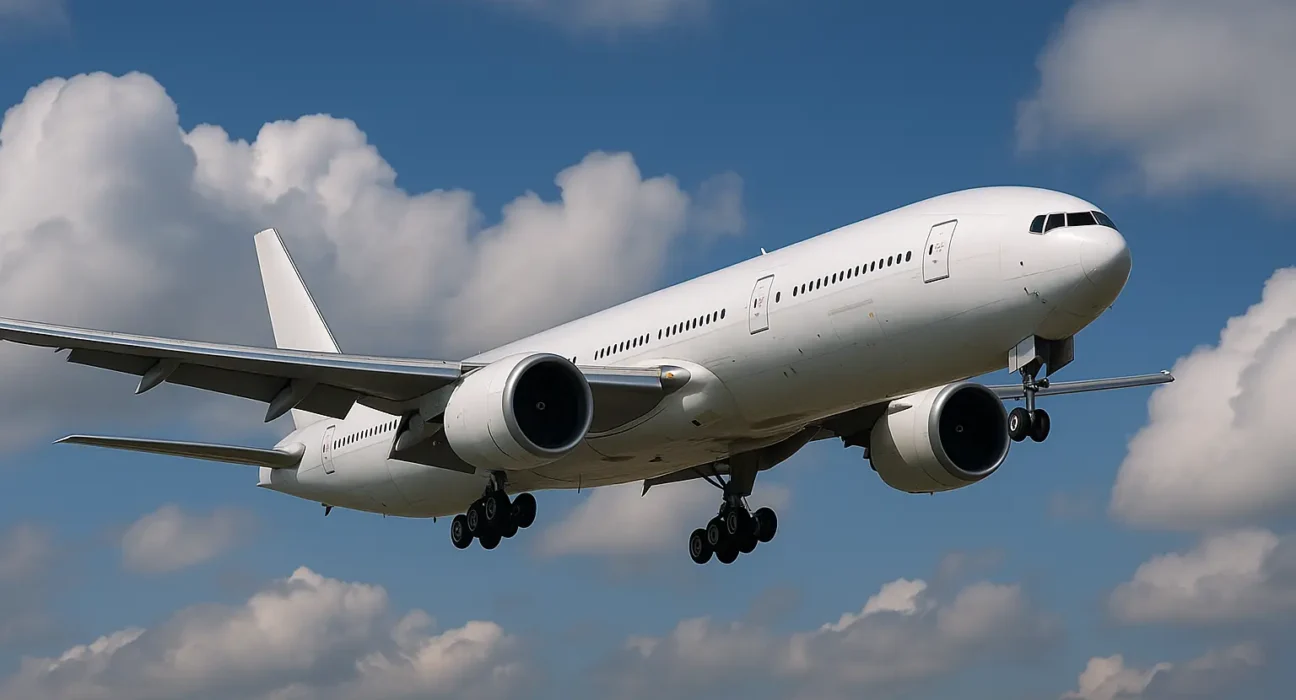57 Flights Were in Pakistani Airspace During Indian Aggression: DG ISPR Warns of Civilian Risk

Collateral information of great importance, the Director General of INTER-SERVICES PUBLIC RELATIONS (DG ISPR) has made known to the public that there were 57 civilian aircraft flying over Pakistan’s airspace in the period of recent wave of INDIAN MILITARY aggression. This declaration sounds the alarm at the extreme risk that confronts geopolitical conflict and threatens non-military stakeholders – especially passengers on commercial flights.
The above comments by DG ISPR shows how close the situation was to affecting innocent lives. During increased military tensions between India and Pakistan, the airspace, which is common to both countries will become a zone of crisis for civilians because most are oblivious about military activities nearby.
Civilian Flights at Risk Amid Rising Tensions
The fact that there were 57 commercial flights in Pakistani skies when Indian military operated shows how well balanced the national defense operation and civilian air travel are. If the war had reached a higher level or a miscalculated strike had been made, these planes – loaded with hundreds of passengers – could have experienced disastrous fall out.
Pakistan did not allow the closure of its airspace, and this move was based on a feeling of responsibility and wise thinking, the DG ISPR commented.
Pakistan made a point of restraint and stability when it permitted flights to proceed despite the speech’s hostility toward Pakistan. This was the second of many acts which the conflicting neighbors took before they launched the 1999 war which resulted in the killing of 1,000 civilians.
Why Pakistan Kept Its Airspace Open
Even as there was increasing military pressure and surveillance reports that there was cross-border activity, Pakistan did not close it air space. Such a choice, uncommon under the heightened military alert, was humanitar and economically justified.
Opening or closing spaces is a risky procedure that may carry immediate consequences to trade, commerce, international connections and regional logistics. Furthermore, it creates a world of confusion for airlines, passengers and the rest of the global cargo machinery which depend on efficient sky corridors through South Asia.
The DG ISPR indicated that this calculated decision prevented unnecessary panic and logistical paralysis of the part of the region’s air traffic.
The Broader Implications for Air Travel Safety
This open military revealing of Pakistan says a lot about global fears for the conflict zone’s aviation security. The tragic shoot down of airliners in past international wars (ie, MH17 over Ukraine 2014, or Iran Air Flight 655 1988) reminds us of human arise against flight from disagreement over politics can imperil civilian flight.
Skies around the country plagued by conflicts should be under permanent control and should reach decisions with some prudence and international coordination. The DG ISPR urges world powers and aviation regulators including ICAO and IATA to develop protocols for improved skies while geopolitics exist.
Diplomatic Restraint Over Military Escalation
Pakistan elected to live with peace and diplomacy not through confrontation by opening its airspace. Such an approach delivers a message both of India and of the world community: Security should not be full of innocent lives being killed.
”There has to be a balancing of military strength with moral clarity”, the DG ISPR stated.
He also urged their neighbors countries to settle their differences amicably by having a dialogue and negotiations and not a forceful posture, which will threaten to plunge the region into conflict.
Public and International Reaction
The DG ISPR utterance has received wide public interest globally and in the country. Pakistan’s mild reaction to a hot moment has been appreciated by aviation analysts, foreign media houses and scholars of International Relations.
Social media in Pakistan was flooded with the trending hashtags such as #FlySafe, #ResponsiblePakistan, and #ISPRBriefing- – which revealed the people’s grateful feelings towards the armed forces, for considering even the civilians and foreign nationals that are aboard these flights as unsafe.
Aviation Authorities on High Alert
Pakistan Civil Aviation Authority (PCAA) has stepped up surveillance over its commercial flight corridors after recent developments. Now, aircraft are tracked in real-time with the improved protocols, and flight control officers track both domestic and foreign airlines until late into the night.
India too is said to have beefed up their flight safety protocols, but no such statement is yet released by them on their military exercises or coordination with the civil aviation.
Long-Term Lessons for South Asia’s Security Environment
It strengthens the necessity for South Asia to develop rules of the air for airspace conflict especially among nuclear armed neighbors. The relationship between the political environments of India and Pakistan has already been characterised by airspace encroachment, aeriel skirmishes and radio interruptions.
Experts say that multilateral agreements targeting aerial safety in the course of military activity should be debated in such platforms as SAARC or SCO or even the UNSC.
What This Means for Passengers and Airlines
For the flying public, this is a reality check. Although there is little danger with air travel, the passengers do not often realize the large-scale strategic play around which their flight tracks are arranged. Traveling airlines are now required to revise risk maps and consider alternative routes when political tension anywhere spikes.
High traffic airlines on Pakistan-India routes such as Emirates, Qatar Airways, Turkish Airlines and Singapore Airlines may start to review route changes and security assurances more commonly.
Final Thoughts: Peace in the Skies Begins on the Ground
That 57 civilian planes were in Pakistani airspace as India was waging its war is less a statistic and more a sobering reminder that personal lives are entangled in political worlds.
Pakistan preferred maturity, not retaliation, in this case leading by example for the region and world. As a simmering pot, as it were, it is important for all parties at stake to interconnected peace, especially as the safety of innocent civilians is on the line.









